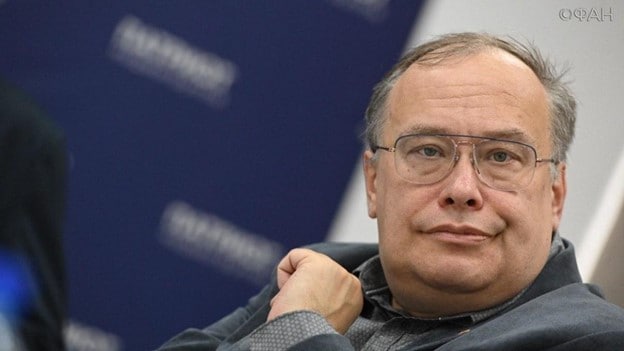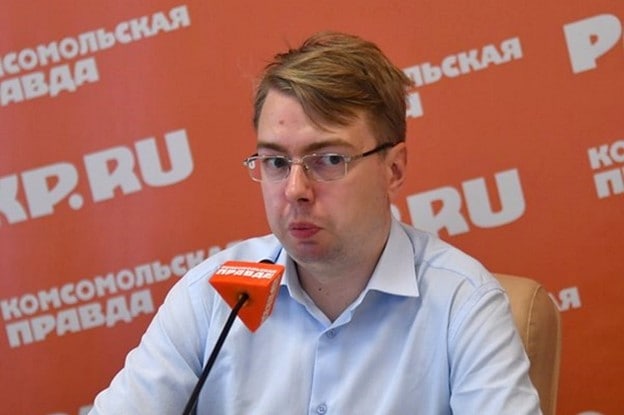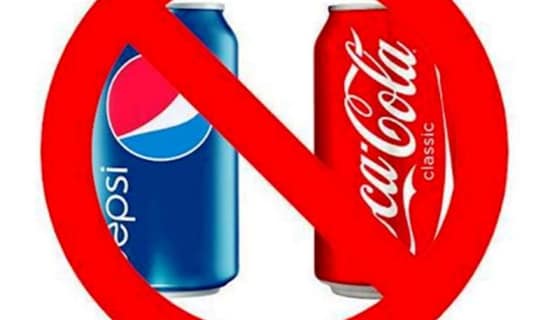The current fighting in Ukraine has shifted public opinion in Finland and Sweden towards closer association with NATO although no dramatic moves are foreseen till parliamentary elections take place in both countries. Sweden will go to the polls in September, 2022, while the Finns will vote in April 2023. But even before steps are taken on formal accession to the North Atlantic Treaty, it is clear that Finland's military cooperation with the US is growing as exemplified by the $11.3 billion signed by the Finns to purchase F-35A stealth fighter jets from Lockheed Martin.
Finish Defense Minister Antii Kaikkonen is to meet with his US counterpart Lloyd Austin during a three day working visit to Washington, ending today March 9, 2022.[1] This visit comes on the heels of a meeting between US President Joe Biden Finish Prime Minister Sauli Niinistö where Biden referred to Finland as a 'strong defense partner' helping a 'united trans-Atlantic response to holding Russia accountable.'[2] This trend has not gone unnoticed in Moscow and on March 5, 2022, an article by Rafael Fakhrutdinov appeared in the newspaper VZGLYAD titled ' Finland Risks Repeating Ukraine's Mistake'. The article was based on interviews with two Russian Baltic experts Nikolai Mezhevich and Alexander Nosovich. Mezhevich threatened Finland with Ukrainization and demilitarization meaning that Helsinki would share the same fate as Kiev. Nosovich appealed to the Finns' self-interest. Neutrality had lifted Finland from the status of a depressed and backward country to the status of a prosperous country. However, Nosovich reminded Finland that the country's neutral status was the reason for the Soviet Union's willingness to forego annexation of the country. If Finland would join NATO Russia would have to react as it would pose a threat to St. Petersburg. The hint was clear: Russia invaded Finland in 1939 because of the threat to Leningrad (formerly and now again St. Petersburg).
The full article follows below:[3]

NATO Secretary General Jens Stoltenberg, the Minister for Foreign Affairs of Finland, Pekka Haavisto and the Minister for Foreign Affairs of Sweden, Ann Linde (Source: Nato.int)
"According to President Sauli Niinistö, Finland is ready to discuss the country's entry into NATO. Earlier he ruled out such a possibility, but the North Atlantic Alliance insistently was leaving its 'door open.' Is Helsinki in fact ready to give up its neutral status, what risks would such a move entail for Russia and how should our country respond to them?
"The day before Finnish President, Sauli Niinistö stated in an interview to the 'Fox News' TV channel that the government of Finland is ready for a discussion on the country's accession to NATO. According to him, the situation has changed both in Finland and in Sweden, as for the first time, according to the polls, the majority of people support entry to NATO.
"'We're trying to assess all the consequences, risks and benefits [of such a decision], in order to do it as effectively and quickly as possible,' added the Finnish president, who is currently on a visit to Washington and, previously held a meeting with the US President Joe Biden.
"According to a poll commissioned by the 'Yle' TV company conducted at the end of February, the majority of Finnish residents would like their country to become a member of the North Atlantic Alliance. 53% of the respondents were in favor of joining NATO, while 28% were opposed. A further 19% of those surveyed were unable to provide a definite answer. As the TV company stated, since 2017 (when a similar poll was held) support for the country's joining NATO has increased by 34%. Let's recall that at the end of February, Niinistö denied the possibility of an immediate application on Finland's NATO membership due to the events in Ukraine. On February 20, the Finnish president claimed that there were no reasons to reevaluate the country's policy of not joining NATO. On February 10, NATO Secretary General Jens Stoltenberg reiterated that Finland and Sweden should retain the right to join the North Atlantic Alliance, as the bloc's door is open for them. The VZGLYAD newspaper wrote in detail about what could be the consequences of such a statement.
"By the end of October, the significant hardening of Finnish sentiments towards Russia was reported. Already then, according to the poll, conducted by the Finnish Business Life Analysis Center (Eva), more than half the Finns perceived Russia as a military threat.
"In 2012, 63% of the Finns surveyed perceived Russia positively; now only 34% of survey participants do. The negative sentiments towards to the country increased from 30 to 45%. It's noted that negative attitudes are more common among the younger generation. Respondents 65-years and older have the most positive opinion of Russia.
"The head of Eva's research department, Ilkki Haavisto, argued that Finns closely follow events in Russia and the country's actions in the world arena, and observe 'negative developments,' including, in their perception, the situation in Ukraine, Syria, and the incidents with blogger Alexei Navalny. Interestingly, despite their ambivalence towards Russia, at that time [in October] Finns as usual opposed the country's accession to NATO.
"At the same time, in mid-February, Sweden (which neighbors Finland) released a foreign policy declaration for 2022. The document states that the country doesn't plan to apply for NATO membership and instead prefers to develop military cooperation with Finland.
"Finland may join NATO, but even now it cannot be called a neutral state due to its rapid militarization. The 'Mannerheim spirit' [of Marshal Carl Gustaf Mannerheim, who led Finland in its wars against the Soviet Union] is making a comeback in the country,' said Nikolai Mezhevich, president of the Russian Association of Baltic Studies [hereafter - RABS].
"'Joining NATO will end up with huge problems for Finland, because it's difficult and expensive not only for us, but also for them, to guard the 1,500-kilometer-long border [between Russia and Finland]. The creation of additional military risks will work in both directions. I do not understand why they need it,' said the expert. According to him, Finland's geographical position demands a sensible leader to at that state's 'helm.'
'"It was the case until recently. As we can see, even Niinistö began succumbing to political hysteria instead of adhering to a cool situation analysis,' said the political analyst. At the same time, no one intends to involve Helsinki in the current conflict, recalled the analyst. 'A strong foundation for economic and political interaction between our countries has been developed. Be that as it may, Finland may choose the wrong path,' continued the expert.
"Mezhevich stated that he hopes that Niinistö's statements won't be come into fruition. 'Helsinki keeps forgetting that it's not dealing with a 1918 model Russia [when the country was wracked by civil war allowing Finland to achieve its independence]. Once during a reception at the Finnish embassy, I stressed that [in response] to Finland's sovereign right of joining NATO, Russia will implement its sovereign right to react to such a step by using its modern weapon systems,' recalled the political analyst.
"According to him, a referendum on Finland's accession to NATO would divide the country roughly evenly. 'Everything will be, as people call it, 'on a slender basis.' For that reason, it's difficult to predict the result. But if the country will in fact join NATO, Russia will have to deploy missile systems on its islands situated in the Gulf of Finland, so that rockets' flight time to Helsinki would be 30 seconds,' explained the Head of RABS.
"Experts also noted that in the past 20 years, the idea of 'Finlandization' of the country has become popular among part of Ukraine's elites.
"If realized, it would provide for Ukraine's military neutrality and an opportunity to make big money from the transit of goods and services from Russia to the EU and back. But now, by all appearances, Finland itself is already one step away from 'Ukrainianization' and potential demilitarization.

Nikolai Mezhevich (Source: Baltstudies.ru)
"In his turn, Alexander Nosovich, Editor-in-Chief of the RuBaltic.ru website, noted that the issue of Sweden's and Finland's accession to NATO is primarily a Western initiative. 'Regarding the situation around Ukraine, the West needs to find some leverage on Russia that would make Moscow stop the military operation and all subsequent political changes in this country [in Ukraine]. Considering the lack of an actual military response from the alliance, its enlargement to a neutral part of Scandinavia seems to be like a plausible alternative,' believed the expert.
"'As for Sweden and Finland, the idea of joining NATO has been growing in popularity over the past few years, especially in Finland. The relevant public opinion has been intensively molded there. However, renouncing neutrality status would be tantamount to scrapping the long-standing political traditions of these two countries,' noted the expert.
"'For Sweden, neutrality is the cornerstone of its current prosperity. The Swedes themselves believe that they have become one of the world's most prosperous countries in social development terms precisely due to their rejection of the active power component in politics. As a result, Sweden avoided involvement in two world wars. Now the proponents of the country's accession to NATO compare the current situation to the beginning of World War II, and talk about World War III. However, for many Swedes this conversely constitutes an argument on behalf of preserving [the country's] neutral status,' the interlocutor explained.
"'Finland is a country that managed to transform from a former national periphery of the Russian Empire into one of the prosperous and developed countries of the West precisely because of its rejection of coalitions, active foreign policy and rapprochement with the East, i.e. with the USSR, and upon its collapse - with Russia,' claimed Nosovich.
"'During the interwar period, Finland was a rather depressed and backward country. Its bet on Nazi Germany during the Second World War did not justify itself, and after 1945 the Finns reached a conclusion that non-accession to any alliances and a mediation role in the Russo-Western conflicts is the most advantageous position for them, ' explained the analyst. The expert stressed that Finland's neutrality didn't come as only the decision of the Finns themselves, but was dictated by Moscow as a condition for Finland's non-annexation to the Soviet Union.
"'This historical memory remains alive in Finnish society, and it certainly serves as a kind of 'anchor' preventing the country's accession to NATO, and as the most convincing argument for neutrality,' argued Nosovich.
"According to the political analyst, the scenario of Sweden and Finland joining NATO is not foreordained, 'although the probability of such a scenario has of course grown. Finland's president is a cautious politician, who values personal relations with Vladimir Putin and the possibility to negotiate with Russia. Furthermore, even the Cuban Missile Crisis did not force Finland to join the military-political bloc back in the day,' added the interlocutor.
"'Meanwhile, Russia has to convey all these aforementioned aspects to its Swedish and Finnish colleagues primarily through its embassies. In case Sweden and Finland do join the North Atlantic Alliance, Russia will have to militarize its Northwest Federal District and increase its [military] presence in the Baltic Sea region, because the bloc status of these countries will pose a direct threat to St. Petersburg,' concluded Nosovich.

Alexander Nosovich (Source: Radiokp.ru)








